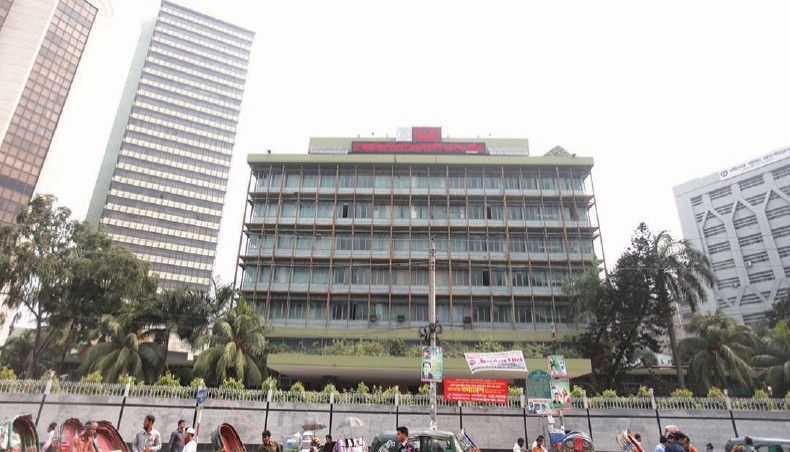$81.74b siphoned in 11 years from Bangladesh
Illicit capital outflow goes unabated as $5.9 billion (about Tk 50,000 crore) was siphoned off from Bangladesh in 2015 taking to $81.74 billion the amount siphoned off the country in 11 years since 2005, revealed the latest study of a global research organisation.
Washington-based Global Financial Integrity released the report of the study ‘Illicit Financial Flows to and from 148 Developing Countries: 2006-2015’ on Monday.
It estimated that illicit financial outflow or money laundering from Bangladesh was ranging from $2.7 billion to $5.9 billion in 2015 and the amount drained out through over-invoicing in import and under-invoicing in export.
The amount of money laundering in 2015 was a partial account as the research body made the estimation considering Bangladesh’s trades only with advanced economies.
In its previous report released in May 2017, the research body estimated Bangladesh’s illicit financial outflow at $75.84 billion at the maximum and $53.54 billion at the minimum between 2005 and 2014.
The organisation also estimated illicit financial inflows into the country ranging from $2.4 billion to $2.8 billion in 2015 which took place through under-invoicing in import and over-invoicing in export.
The organisation estimated the illicit financial outflows and inflows using two datasets of International Monetary Fund’s direction of trade statistics and United Nations’ International Trade Statistics (Comtrade).
According to estimates based on direction of trade statistics, 17.5 per cent of Bangladesh’s total trade worth $33.7 billion with advanced economies was laundered in 2015 while Comptrade-based estimates showed that 7.2 per cent of the trade value was drained out from the country.
The study put Bangladesh on the list of top 30 countries ranked by value of both illicit outflows and inflows.
The highest $222 billion was drained out from China in 2015 followed by Mexico $42.9 billion and Malaysia $33.7 billion.
A total of $9.8 billion siphoned off from neighbouring India in 2015.
Global Financial Integrity defines illicit financial flows as ‘money that is illegally earned, used or moved and which crosses an international border.’
The report is the latest of Global Financial Integrity’s series of reports on illicit financial flows.
In the previous report released in May 2017, the research body estimated illicit financial outflows from Bangladesh ranging from $6.06 billion to $8.97 billion in 2014, calculated based on the total international trade of the country worth $70 billion in the year.
The latest study says that trade-related illicit financial flows appear to be both significant and persistent features of developing countries’ trade with advanced economies.
As such, trade misinvoicing remains an obstacle to achieving sustainable and equitable growth in the developing world, it says.
In 2015, the amount of illicit financial flows from developing countries was $1,935 billion or 28.5 per cent of total trade worth $6,742 billion with advanced economies.
Some $807 billion of the amount was drained out from the countries.
Economist and experts said that overall trend of money laundering from Bangladesh remained a major concern as the country was put on the list the top 30 countries of illicit outflows.
Former Bangladesh Bank governor Salehuddin Ahmed told New Age on Monday that the trend of money laundering would not decline unless corruption was prevented.
Source of illegal money should also be checked as no one launders their legally earned money, he said.
The central bank and customs authorities are responsible for checking illicit capital flows through import and export process and it is possible to detect the incidences if both the agencies become vigilant over potential over-invoicing in import or other misinvoicing, he said.
He suggested that a special law on prevention of serious financial frauds and crimes should be enacted and a competent agency should be created to deal with the issues.
The Anti-Corruption Commission and the existing regulations are not capable of checking money laundering, he added.
Analysing the report, Centre for Policy Dialogue senior research fellow Towfiqul Islam Khan found that the trend of money laundering from Bangladesh was not declining as the country was put on the list of top 30 of the 148 countries for illicit financial flows in 2015.
This year, the estimates have also been done only on partial trade volume of the country as the research body has considered trade volume with advanced economies only, he said.
Regarding illicit inflows, he said that traders could take the scope of illicit inflows to evade tax and move the money earned through illegal ways, including smuggling and trafficking.
They can also adopt over-invoicing in export to get higher cash incentives given by the government on export, he added.
He said that the government should take initiatives for both institutional and legal reforms to curb illicit financial flows.
The government can also ally with similar economies to push the advanced economies to take stern position against illicit financial flows, he added.
News Courtesy: www.newagebd.net











